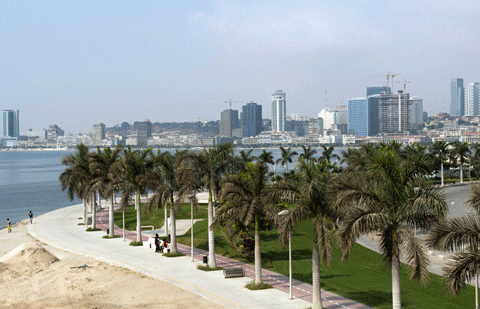Zhou's visit to Africa had lasting effect
Updated: 2014-05-05 08:20
By Zhao Shengnan (China Daily)
Comments Print Mail Large Medium SmallLeader's landmark trip led to more exchanges, infrastructure projects
Among countless high-level exchanges between China and African countries, the visit by the late premier Zhou Enlai half a century ago seems to be a special one that often finds both sides retracing its legacy.
The landmark visit, from the end of 1963 to the beginning of 1964, was the first trip to Africa by a Chinese leader after the establishment of the People's Republic of China in 1949.
It was also the longest visit during Zhou's decadeslong career, bringing Zhou, then 67, to 10 African countries: United Arab Republic (today's Egypt), Algeria, Morocco, Tunisia, Ghana, Mali, Guinea, Sudan, Ethiopia and Somalia.
"The visit's achievements exceeded expectations, laying the foundation for the China-Africa relationship," said Dai Yan, a veteran diplomat who used to work in Africa.
Mutual respect
Zhou's visit came shortly after most of these countries had gained independence.
At the beginning of the trip, Zhou put forward the five principles guiding China's relations with the African and Arab countries and the eight principles that governed China's foreign economic and technical aid.
The two proposals "meant a lot" for the newly independent African countries, which had limited influence in the world, said Du Xiuxian, the only photographer to travel with the Chinese delegation.
When Du recalled the visit in 2006 to a Beijing Youth Daily reporter, his first impression was that wherever the Chinese delegation arrived, a large number of local people in colorful ethnic garments crowded the streets, playing drums, dancing, applauding or shaking hands with the delegates.
The heads of some African countries went to exceptional lengths to welcome Zhou.
King Hassan II of Morocco invited Zhou to live in his palace, and he stood in front of the palace to welcome the premier, setting aside his custom of never welcoming foreign guests outside.
The first president of Guinea, Ahmed Sekou Toure, declared the day of Zhou's arrival a national holiday, leading almost all residents in the capital city to pour into the streets to welcome the delegation.
The president welcomed Zhou at the airport in person, and even later drove a car by himself with Guinea's parliament head and defense minister to visit Zhou in a suburban villa specially arranged by Toure.
Du said Zhou was touched by the hospitality, but he insisted that, for safety reasons, the three top leaders of Guinea should not have driven alone to the suburb.
"The three leaders, much younger than Zhou, were also moved by the sincere advice from an elder," Du said.
The trip was not marked only by joy. In Ghana, the planned first leg of Zhou's African tour, an assassination attempt was made on then-president Kwame Nkrumah on Jan 2, 1964. Nkrumah survived, but one of his guards was killed.
Sharply escalated tension in the western African country left Nkrumah assuming that Zhou would not visit Ghana. He moved into a castle and canceled all activities outside.
Zhou said: "We cannot cancel the visit because they encountered difficulties, as it would only show our disrespect and a lack of support. We will go and show our sincerity during hardship."
Out of concern for Nkrumah's safety, the Chinese suggested that Ghana cancel all welcoming ceremonies.
"Premier Zhou asked vice-foreign minister Huang Zhen to convey his condolence to Ghana as well as a message: The president does not need to receive Zhou at the airport, and all activities can be conducted within the castle," recalled Cheng Yuangong, one of Zhou's guards.







